 Server
Colocation
Server
Colocation
 CDN
Network
CDN
Network
 Linux Cloud
Hosting
Linux Cloud
Hosting
 VMware Public
Cloud
VMware Public
Cloud
 Multi-Cloud
Hosting
Multi-Cloud
Hosting
 Cloud
Server Hosting
Cloud
Server Hosting
 Kubernetes
Kubernetes
 API Gateway
API Gateway

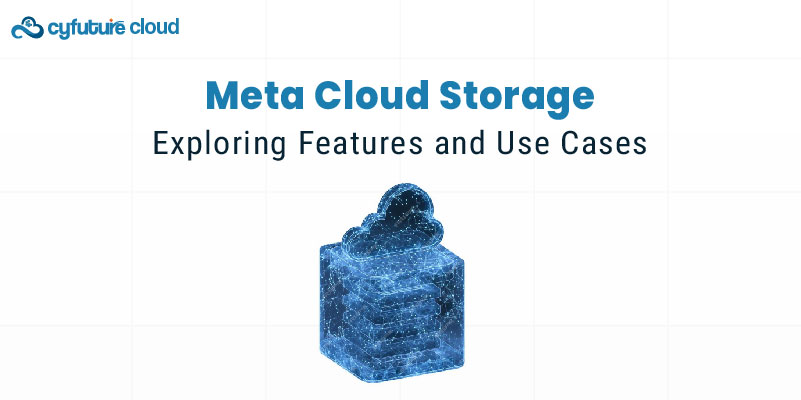
In today’s digital age, cloud storage has become an integral part of personal and professional life, offering scalable solutions for storing and managing data. Meta cloud storage, a concept that combines advanced data organization, accessibility, and security, stands out as a forward-thinking approach to cloud computing. This article delves into its features and use cases, with a focus on its relationship with servers, colocation, and hosting.
Meta cloud storage refers to a sophisticated cloud architecture that enhances traditional cloud storage with metadata management, seamless integration, and intelligent data distribution. Unlike standard cloud storage systems, it optimizes data organization and retrieval processes, ensuring enhanced performance and efficiency across servers.
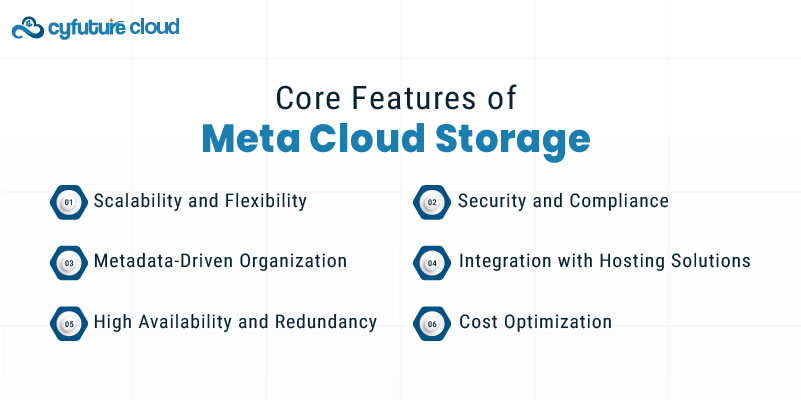
Scalability and Flexibility
Meta cloud storage allows seamless expansion of storage space to accommodate growing data needs without the constraints of physical infrastructure.
Compatible with a variety of hosting models, including on-premises and colocation setups.
Metadata-Driven Organization
Employs metadata to categorize and index files, making search and retrieval faster and more intuitive.
Supports advanced tagging and automated classification for efficient data handling.
High Availability and Redundancy
Ensures data availability through replication across multiple servers.
Provides robust failover mechanisms to mitigate the impact of server outages.
Security and Compliance
Offers encryption for data both at rest and in transit.
Includes role-based access controls and audit logs to ensure compliance with regulations.
Integration with Hosting Solutions
Works seamlessly with on-premises servers and colocation hosting for businesses seeking hybrid or private cloud setups.
Supports edge computing by integrating storage closer to the data source.
Cost Optimization
Provides tiered storage options to balance performance and cost.
Allows businesses to prioritize critical data on high-speed servers while archiving less critical information.
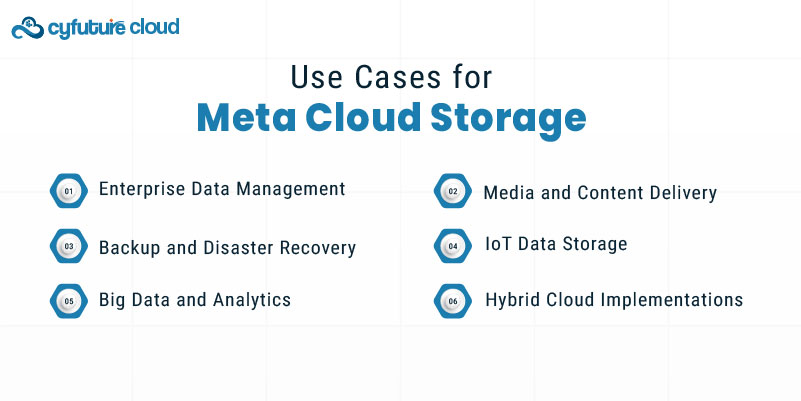
Enterprise Data Management
Meta cloud storage is ideal for enterprises managing large datasets across various departments.
Metadata tagging streamlines data categorization, making it easier to access and analyze.
Media and Content Delivery
Supports efficient storage and distribution of multimedia files.
By leveraging colocation hosting, content providers can enhance delivery speeds and reduce latency for users worldwide.
Backup and Disaster Recovery
Enables secure backup solutions with quick restoration capabilities.
Data replication across servers ensures minimal downtime during disasters.
IoT Data Storage
Handles large-scale, real-time data generated by IoT devices.
Integration with edge servers reduces latency and enhances processing efficiency.
Big Data and Analytics
Stores and organizes data for analytics platforms.
Metadata management accelerates querying and processing in data-intensive applications.
Hybrid Cloud Implementations
Combines private and public cloud hosting environments for optimized resource utilization.
Colocation facilities play a vital role by bridging on-premises servers with cloud infrastructure.
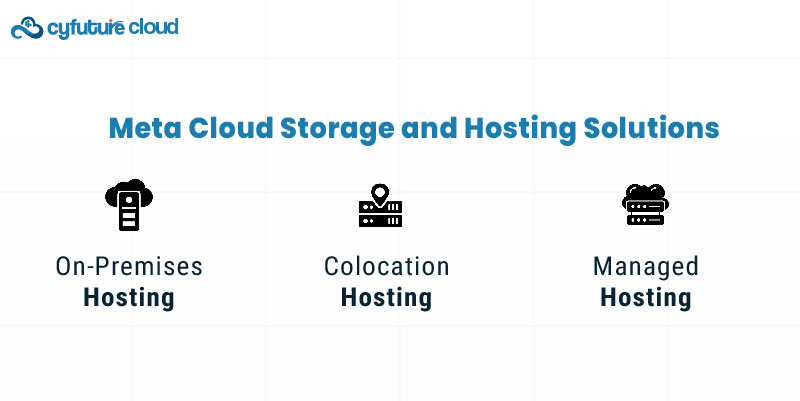
Meta cloud storage relies heavily on hosting infrastructure for optimal performance. Here’s how hosting options influence its implementation:
On-Premises Hosting
Offers complete control over data but requires substantial initial investment in servers and storage hardware.
Best suited for organizations prioritizing data sovereignty.
Colocation Hosting
Combines the control of on-premises hosting with the cost benefits of shared infrastructure.
Ensures high availability through data center-grade power, cooling, and connectivity.
Managed Hosting
Transfers the operational burden to a third-party provider while maintaining high performance.
Ideal for businesses that prefer to focus on core operations.
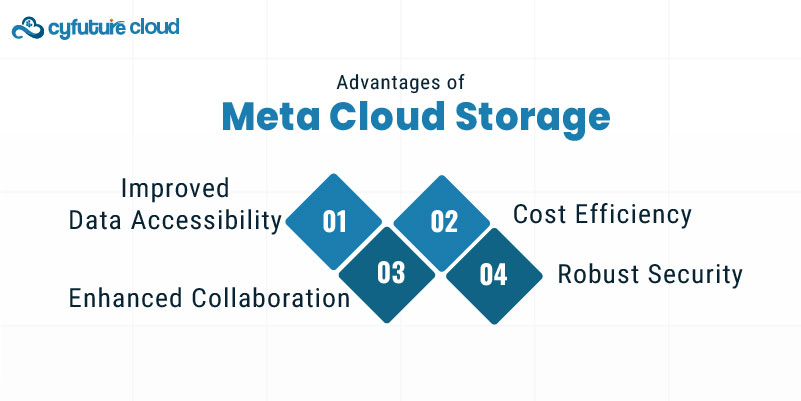
Improved Data Accessibility
Metadata-driven organization simplifies search and retrieval.
Cost Efficiency
Enables businesses to optimize storage costs by tiering data based on importance.
Enhanced Collaboration
Supports multiple users and locations, making it ideal for distributed teams.
Seamless Integration
Works with existing hosting and server setups, enabling gradual migration to the cloud.
Robust Security
Provides multiple layers of protection against data breaches.
Conclusion
Meta cloud storage is a game-changer for organizations seeking a scalable, secure, and efficient way to manage data. Its integration with servers, colocation, and various hosting models makes it a versatile solution for businesses of all sizes. By understanding its features and use cases, organizations can unlock the potential of this advanced storage system to meet their dynamic needs while optimizing costs and performance.

Let’s talk about the future, and make it happen!
By continuing to use and navigate this website, you are agreeing to the use of cookies.
Find out more


